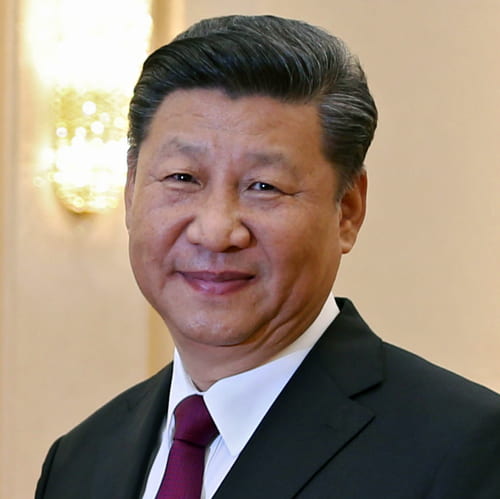By Jacob Koelsch
Undergraduate Research Assistant
Baker Institute China Studies Program
In the midst of widespread coverage of issues such as China’s mistreatment of its Uighur population in Xinjiang, civil unrest in Hong Kong, or the expansion of the Belt and Road Initiative (BRI), we must not lose sight of subtler instances of Chinese Communist Party (CCP) control, such as those initiatives currently underway in higher education. At the university level, the distinction between influential academics and high-ranking public security officials is becoming less and less clear, illuminating yet another instance of deliberate action to strengthen party control.
Since he assumed office in November 2013, party General Secretary Xi Jinping has been quietly raising his battle flag against Western infiltration, demanding that the Chinese people, especially education higher-ups, rally around him and his brand of party ideology. In the same month Xi assumed office, the Central Committee General Office (中共中央办公厅) published and circulated Document No. 9 to top party cadres, a high-level communiqué that explicitly warns of the dangers of poorly vetted educational materials containing Western democratic values, especially that which directly challenges party control. Continuing his movement against democratic principles at a meeting on ideology in higher education in 2016, Xi asserted that universities must “serve the Communist party in its management of the country” and that “adherence to the Party’s leadership is essential to the development of higher education in the country.”
Strengthening Xi’s official party line, the Chinese Ministry of Education (MoE) recently oversaw the opening of several research centers on Xi Jinping Though(习近平思想). The first center was established at Renmin University on October 25, 2017, and seeks to research the means by which the CCP can maximize control over Chinese society. Although not the first to open devoted research centers on party ideology, Xi Jinping is doing so at a much higher rate than his two predecessors, and recently took initiative to elevate himself within the canon of party leaders to a similar level of the revered Deng Xiaoping, notably moving to enshrine Xi Jinping Thought into China’s constitution in October 2017, and publicly granted himself the Maoist title of “People’s Leader” (人民领袖) in December 2019.
An integral aspect of the CCP’s initiative against academic dissent is the party’s padding of the MoE and university higher-ups with party loyalists, deliberately choosing candidates with experience in the party’s public security apparatus. In 2016, the MoE chose former Chinese Academy of Governance Party chief Chen Boasheng as China’s Education Minister, a move that displayed the MoE’s commitment to former minister Yuan Guiren’s efforts against the infiltration of Western values. Chen Baosheng’s nomination marks the first time in the post-Mao era that a former university party chief has been chosen as the head of the MoE. In the realm of university nominations, the former party secretary of Beijing’s state security bureau, Qiu Shuiping, was appointed president of Peking University in 2018, potentially signaling a troublesome trend in party oversight. A party loyalist planted in one of the top social science schools in the nation, Qiu Shuiping, serves as an effective filter for academic dissent for an institution whose output is considered the hallmark of Chinese social science.
Aside from top universities, the MoE is also interested in monitoring the work of individual researchers to ensure that none of their analyses contradict the official party line. Speaking to professors gathered at an April 2019 conference with the Politburo, Xi explicitly stated that educational initiatives should seek to “strengthen political guidance for young people, guide them to voluntarily insist on the party’s leadership”; educators whose work challenges party lines would have their platforms upon which they preach resistance eliminated. Just this year, professors Xu Zhangrun of Tsinghua University and scholar Yu Jianrong were both separately blacklisted from research and speaking opportunities at top universities and had their social media accounts muted.
Many of Xi Jinping’s major initiatives, notably his anti-corruption campaign, left vacancies in top positions across many areas of influence—posts that Xi Jinping tends to fill with known loyalists who will not oppose his sweeping style of governance. Although deliberately discreet, the continued opening of Xi Jinping Thought centers, and the broadening initiative against dissent in both teaching materials and academic output, make for stark examples of deliberate party centralization and strengthening of CCP control over academia. As Chinese educational institutions continue to lose autonomy, historically open pipelines of academic exchange and subnational engagement may become bargaining tools for international disputes— as they have recently in visa issuance disputes for American and Chinese academics seeking to do work abroad. Western academic programs operating in China may also come to see their scholar cohorts and curricula vetted by the CCP, as crackdowns against Western democratic influence in China become more public and commonplace.
